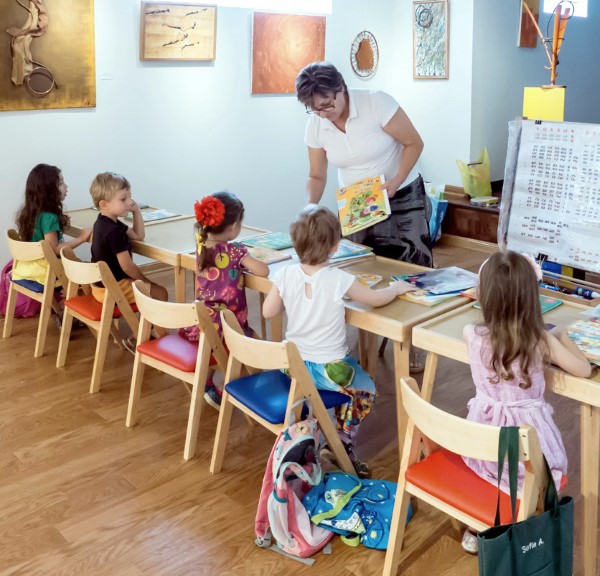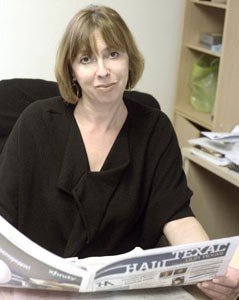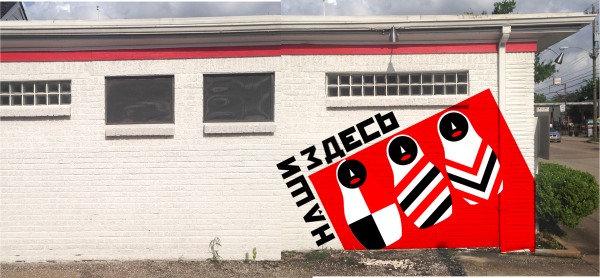In Houston, Texas, a primary school, where most of the subjects will be conducted in Russian, is going to open soon. It is notable, that the initiative came directly from the municipal authorities. But in order to work correctly, the school needs assistance of the Russian side – methodological assistance, first of all. Sofia Grinblat, President of the Russian Cultural Center “Our Texas” told the Russkiy Mir Foundation about that.
– How did the idea of opening a Russian school in Houston emerge? Why do you need assistance of the Russian side?
– Representatives of the Houston Independent School District came to me with an idea to open a primary school with full immersion in Russian. Houston is the most multinational city in the USA, it is even more multinational, than New York. They do already have the experience of opening such kind of schools – Spanish in general. Sometime in the Soviet period, they used to call them ‘special schools’. Chinese and Arab schools have been working for many years, in the summer, a French school is going to open. And now they also want a Russian school.
Lessons at the Russian school. Photo: ourtx.com
I though this to be interesting, because the main purpose of our Russian Cultural Center is promoting the Russian language and literature, and I thought that I would do my best. We have been working with the Russian Worldwide project for four years; its manager Artur Mogutov cooperates with the Public Chamber of the Russian Federation under the project “Russian Corner”. He is involved in spreading Russian Learning Programs around the world. He helped me to get in contact with the Head of the Public Chamber Commission on Public Diplomacy and Compatriots Relations Elena Vasilievna Sutormina and in April, a round table discussion on the topic was held at the Public Chamber. I also contacted our Consul General in Houston, who asked for assistance of different Russian organisations.
The main difficulty is that the school has to follow the American – particularly, Texas - school curricula, but we still have to have maths or science books in Russian. So, our school district needs help in designing the methodological basis and in preparing teachers. As far as I know, they are interested in cooperating with the Russian side.
– Is there a Russian school in Texas?
– There are Sunday schools, which are private initiative of the organisations like ours. There is an adult Russian language school. A Russian language school for children on basis of our Center has been working for three years now. There is Russian teaching in high school – children can choose learning Russian as a foreign language in two schools of the state. But it is absolutely clear, that it is more difficult to learn Russian at the age of 13-15, than it is at elementary school.
The school, which the Houston authorities are planning to open, will be a kind of the special schools of the Soviet times. All the subjects will be conducted in Russian.
– Are the Russian-speaking inhabitants, living in Houston interested in it?
– Not only the Russian-speaking ones. I am very pleased with the fact that our Independent School District has finally understood how important it is for children to learn foreign languages. It is widely known that Americans do not speak foreign languages in general, as they can be understood everywhere. But in time it became clear that it is nice to speak several languages.
There are 285 elementary schools in the Houston School District now. 70 of them are specialized in advanced Spanish learning. One Chinese school, which is very popular – they had 8 applications per place when it was opened and not only from Chinese inhabitants.
It is planned to take five and six-year-old children at first. It’s a group of approximately 50 people. Then they will move to the next grades and all the school will gradually learn in Russian.
– Will the State Administration give money for this?
– Absolutely. The thing is we do not even have to open a new school, the studies will be held on basis of an already existing school, which will be opened in the city district, chosen by the amount of people, willing to learn in the framework of this programme.
The initiative of opening such a school comes from the Houston School District. And we need help of the Russian side to create programmes, text books and to prepare the teachers. It is quite difficult to find several teachers in Houston, who will teach for instance maths in Russian at elementary school.
– Please, tell us about the Russian Cultural Center “Our Texas”. You have mentioned that there is a Russian Sunday school.
– The Russian Cultural Center “Our Texas”has been working since 2003. It is a large compatriot organization in the Southern Consulate District and the sole compatriots’ organization in the USA, which has its own premises.
I have been living in Houston for 26 years now. Earlier, Russian immigrants wanted to immerse in the American environment as soon as possible and to become Americans, now we have understood – it is not bad to be Americans, remaining Russians. Everyone wants our children and grandchildren to grow up with the same books we used to read back then. It is not only about language. It is about some kind of content, hidden behind it. It is about the things we understand at once, when we say ‘cheburashka’ and understand what it is about right away. So, it is very important to learn culture in addition to language.
Our school is not big – the premises do not allow. People, who want to save the language in the family, come to us. Mixed families, where they do not almost speak Russian at home, also come. We want to develop further very much and hope that after the municipal school with advanced Russian learning has opened, our Sunday school will start developing, too.
Russian school under Russian Cultural Center “Our Texas”. Photo: ourtx.com
But yet, we are not only a school. We started our activities with inviting famous artists and organizing concerts. Our biggest event was an amateur song gathering. In over 12 years, it grew into the biggest South Coast singer festival, which gathers from 500 to 1500 visitors. In April, we had the 26th gathering with 550 participants.
Apart from this, “Our Texas” Center holds Russian film shows, we invite Russian Artists to perform. Last year, in favour of the 70th WWII Victory anniversary, we held an exhibition dedicated to this date; the Russkiy Mir Foundation took part in organizing it, assisting in finding the archive photographs of the WWII.
We do not want to revolve only around the Russian diaspora. We have always wanted other city inhabitants to know about us and we cooperate with all the large municipal arts organisations – with the opera theatre, symphony orchestra, ballet. Chief Conductor of the Houston Orchestra was a member of our Board of Directors for many years. It all tells about the importance of the Russian Cultural Center in the city life.










